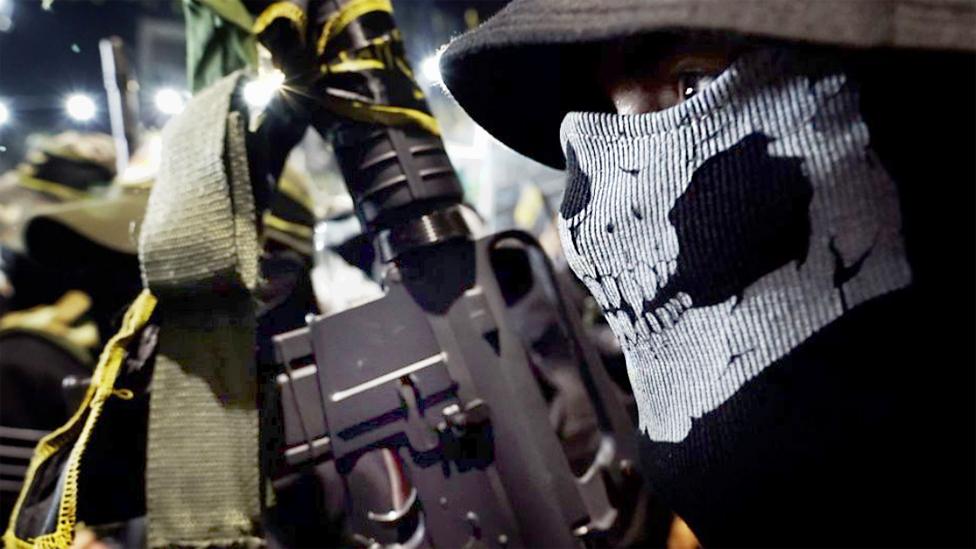Autistic Palestinian teen's killing casts spotlight on Israel tactics
- Published
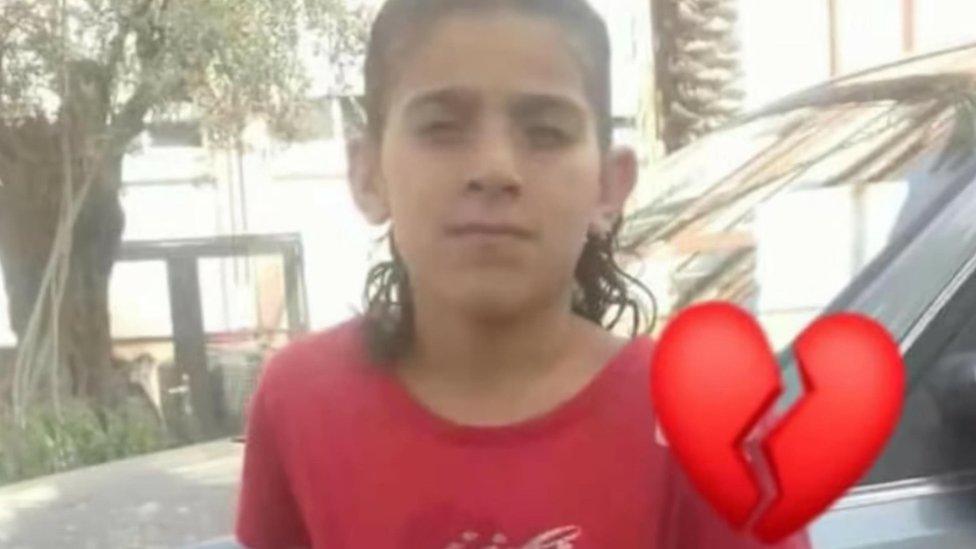
Fulla Masalmeh was killed just one day short of her 16th birthday
Fulla Masalmeh was buried on her 16th birthday in a grave sealed with cement and marked by a single bunch of flowers.
Her family had planned a party that day, but instead said goodbye to their "wonderful and beautiful" daughter who had lived with the challenges of autism and an upbringing in poverty.
A day earlier, Fulla was killed by Israeli soldiers who fired multiple shots at the car she was in.
The army said the vehicle, driven by a 26-year-old Palestinian man, did not heed calls to stop and sped towards them - an account rejected by eyewitnesses and Fulla's family. The army later said the driver was found to be drunk.
The case has thrown a fresh spotlight on Israel's use of lethal force in what the United Nations (UN) says is the deadliest year for Palestinians in the occupied West Bank since 2005, following a series of deadly Palestinian attacks against Israelis.
The UN's envoy to the region, Tor Wennesland, said he was "appalled" by her death and called for an immediate and thorough investigation.
Claims contested
Fulla grew up in a rural village in the southern West Bank. But after her parents separated, she lived with her mother, Ghalia, who worked as a hospital cleaner in the town of Beitunia.
"She meant everything to me… she always slept in my bosom. Because she was ill, she used to sleep with me… she was autistic," Ghalia told the BBC, referring to the disability that saw her daughter struggling to learn independently.
In the days leading up to her 16th birthday, Fulla phoned her older sister Dalia and asked her to plan a party at their village home.
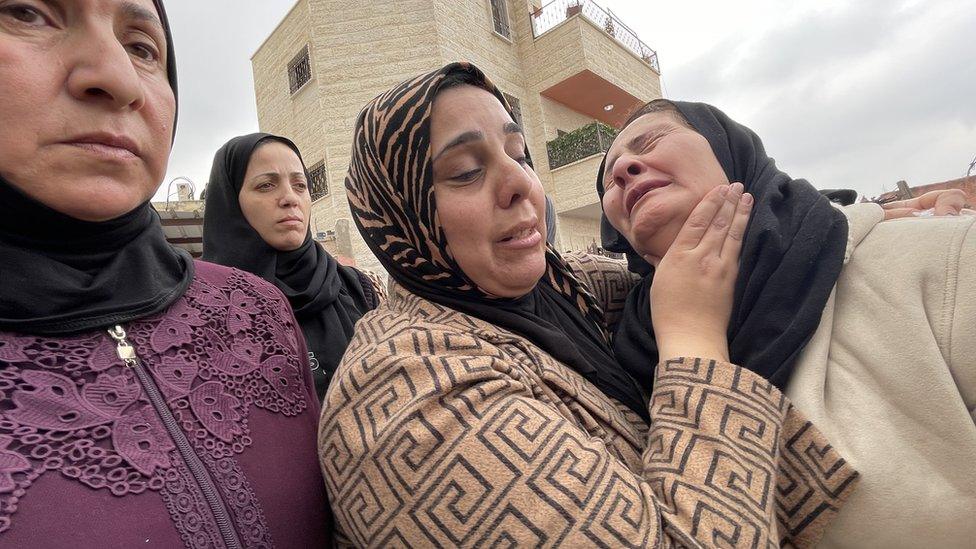
Fulla was cared for by her mother Ghalia (right)
"[Fulla] wanted to go out and buy stuff, but she did not know day from night," says Dalia. "My mum locked the door as she was afraid for her. But [Fulla] took the spare key and left. When she left, we contacted the [Palestinian] police to search for her," explains Dalia.
It is not clear how Fulla came to be with the man driving the car that she was killed in. Her family says he was giving her a lift home in the early hours of Monday morning.
It is a part of the story locals are reticent to speak about, given social taboos around the possibility of an exploitative or unsanctioned relationship and the use of alcohol. But it hints at a further layer of tragedy for Fulla, a vulnerable 15-year-old girl who the family says was reported missing from home.
Meanwhile, the Israel Defense Forces (IDF) was carrying out a series of military arrest raids across the occupied West Bank, including in Beitunia, where it says soldiers were apprehending a "wanted suspect".
Video from a local security camera shows several heavily armed Israeli soldiers and a military jeep stopped on a hill, one of the town's main roads, while the raid was being carried out nearby.
In the footage, which has no sound, a car enters the frame and two soldiers on a side street can be seen firing towards the passenger side, where it's believed Fulla was sitting.
At least two bullets appear to be fired after the car has stopped. The video doesn't show what happened in the moments before this and photos of the damage to the car suggest soldiers positioned elsewhere had also fired at it.
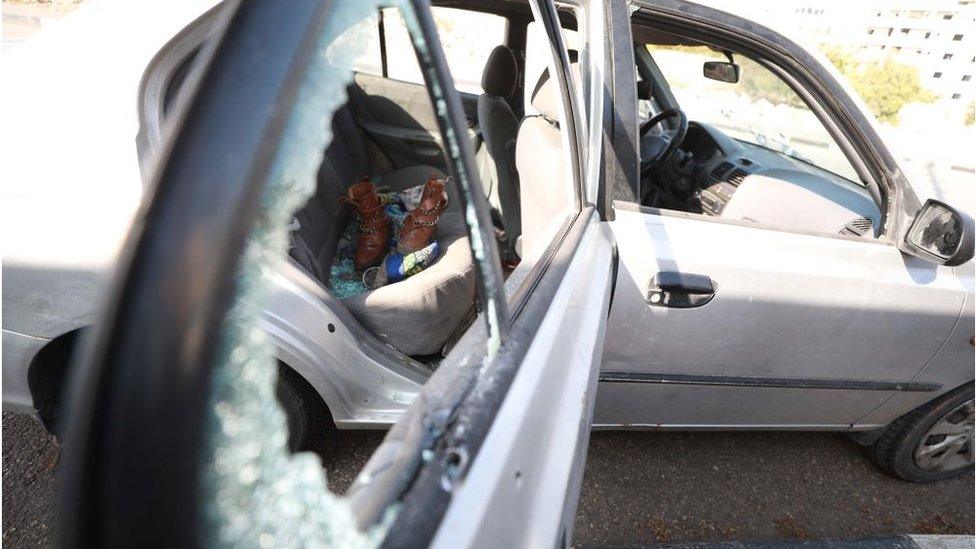
The Israeli military says soldiers opened fire after the car sped towards them
The IDF says soldiers had seen a "suspicious vehicle" heading in their direction and ordered it to stop, which it says it did "for a few seconds". But the army says the car then accelerated towards the soldiers who "responded with fire". It added that the driver was later found to be under the influence of alcohol.
Anas Hassouna, aged 26, was wounded, detained by Israeli forces and taken to hospital.
The BBC spoke to three eyewitnesses who live in an apartment block overlooking the scene, all of whom said they saw no attempt to run over the soldiers.
"The driver was not attacking anyone, he was surprised by them," said a resident who called himself Qusay and asked for his full name not to be published for fear of losing his permit to cross military checkpoints for work in Israel.
"The car passed by and it had been raining, thunder and lightning, [so] the driver had the windows closed and possibly he didn't hear them."
Mounting toll
This year, more than 130 Palestinians have been killed in the occupied West Bank and East Jerusalem. The highest proportion have been militant gunmen shot dead by Israeli forces, often in gun battles during arrest raids.
Other fatalities include teenagers shot after reportedly throwing stones or petrol bombs, unarmed civilians and bystanders, anti-settlement protesters, and individuals shot while carrying out attacks including stabbings and car rammings.
Israeli military search and arrest raids have taken place nearly every night in the occupied territories, following a wave of armed violence by Palestinians targeting Israelis. These attacks have killed more than 25 people since March, making this year the deadliest for Israelis since 2015.
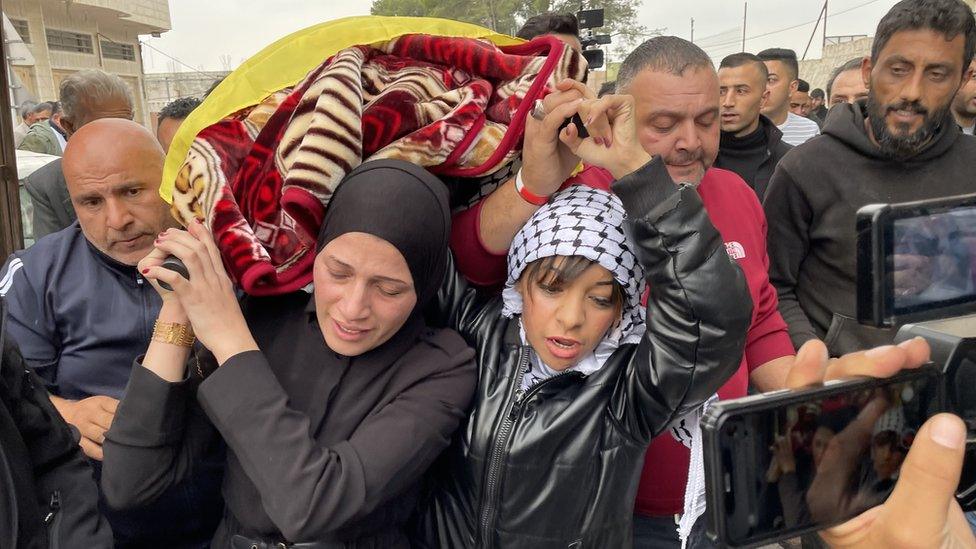
Fulla Masalmeh is one of a particularly high number of Palestinians killed this year
On Tuesday near the West Bank settlement of Ariel, three people were killed in a stabbing and car ramming attack by a Palestinian who was shot dead by Israeli forces.
The IDF has said it will continue to carry out its operations in the West Bank in order to protect its civilians from the threat of terrorism.
According to the human rights group Defence for Children International (DCI) Palestine, Fulla Masalmeh's case highlights the absence of any proper accountability system for Palestinians under Israeli military occupation.
"This is the atmosphere that Palestinian children live in," says the group's director, Khaled Quzmar. "According to our documentation, there was no risk from this girl and the car she was in… there was no right for them to target it."
At her funeral in the village of Beit Awwa, hundreds of men joined the procession to her burial, while women mourned at the family home.
Fulla's aunt, Samira Muluwah, described the loss of an innocent child. Fulla would just turn up at her house and "she would tell me she loved my children so much".
"Fulla was a wonderful and beautiful kid. She was poor, but she would blow your mind away with her beauty," she said.
- Published1 October 2022
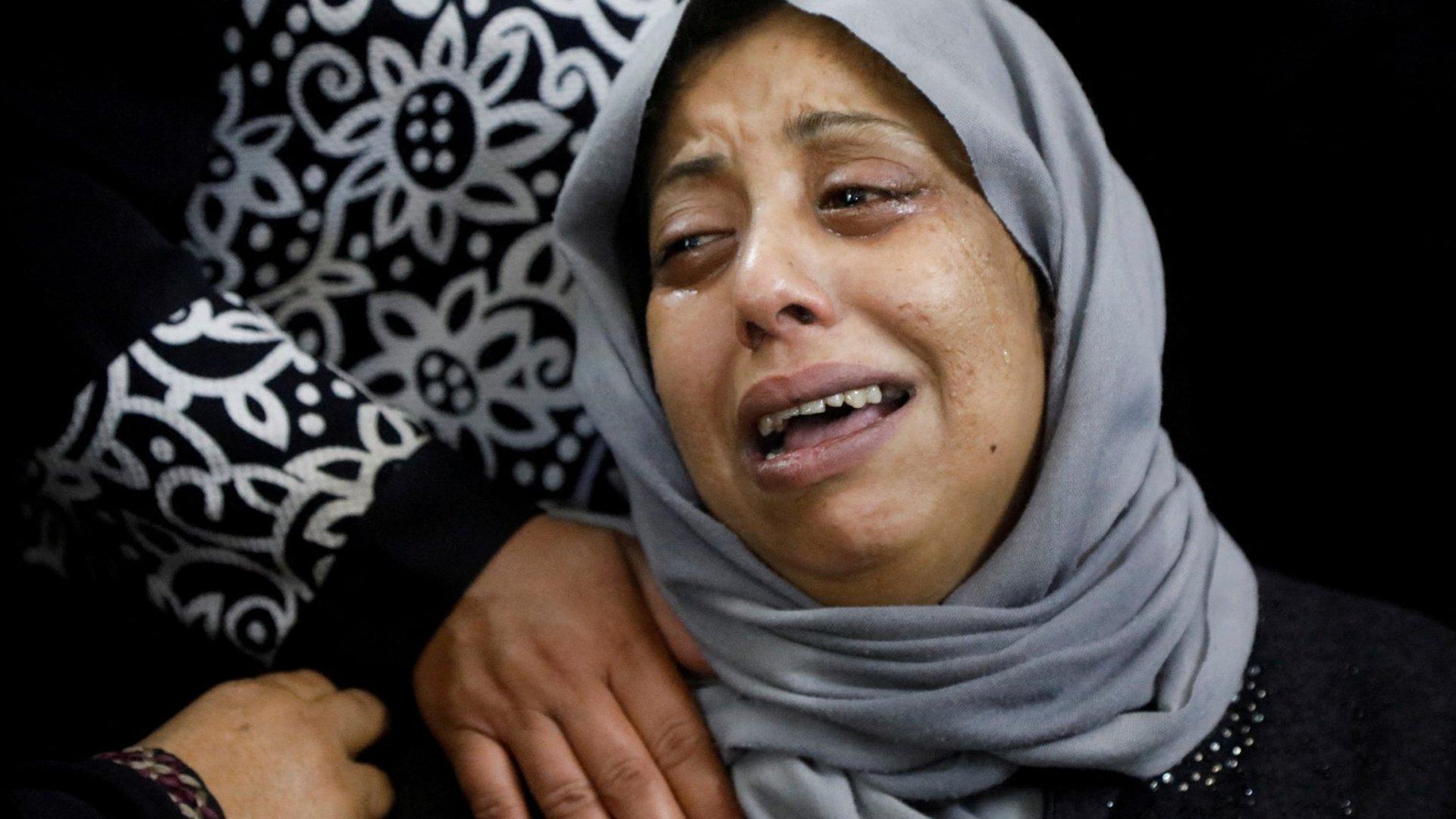
- Published12 July 2022
